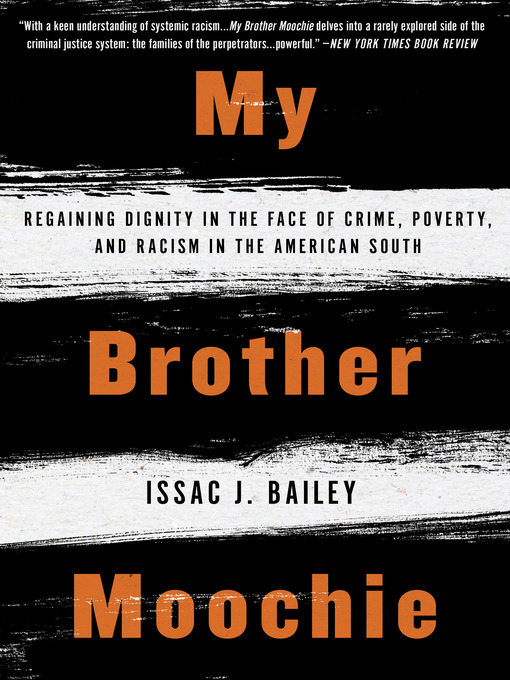A younger brother’s heartfelt memoir “speaks to the inequities of the criminal justice system and the damage done to family and community when loved ones are locked away” (USA Today).
“Represents a much larger story about the deeply rooted effects of systematic racism, the Jim Crow South and how race, poverty, violence, crime, opportunity and drug abuse intersect.” —Ebony
At the age of 9, Issac J. Bailey saw his hero, his eldest brother, taken away in handcuffs, not to return from prison for 32 years. Bailey tells the story of their relationship and of his experience living in a family suffering from guilt and shame. Drawing on sociological research as well as his expertise as a journalist, he seeks to answer the crucial question of why Moochie and many other young black men—including half of the 10 boys in his own family—end up in the criminal justice system. What role do poverty, race, and faith play? What effect does living in the South, in the Bible Belt, have? And why is their experience understood as an acceptable trope for black men, while white people who commit crimes are never seen in this generalized way?
My Brother Moochie provides a wide-ranging yet intensely intimate view of crime and incarceration in the United States, and the devastating effects on the incarcerated, their loved ones, their victims, and society as a whole. It also offers hope for families caught in the incarceration trap: though the Bailey family’s lows have included prison and bearing the responsibility for multiple deaths, their highs have included Harvard University, the White House, and a renewed sense of pride and understanding that presents a path forward.


